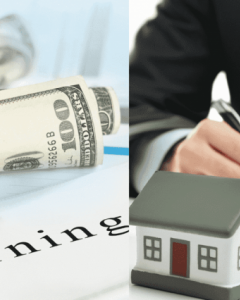US Consumers' Financial Struggle: Savings Built During Pandemic Vanishing Into Thin Air!
The Covid-19 pandemic has left an indelible impact on the world, with the United States being no exception. Amidst the chaos and uncertainty, US consumers managed to accumulate trillions of dollars in savings, providing a lifeline for their continued shopping habits despite the onslaught of soaring inflation. However, this well of savings is slowly running dry, and the manner in which consumers adapt their shopping habits in the near future will play a crucial role in determining whether the world's largest economy can avoid a recession.
The Covid-19 pandemic has left an indelible impact on the world, with the United States being no exception. Amidst the chaos and uncertainty, US consumers managed to accumulate trillions of dollars in savings, providing a lifeline for their continued shopping habits despite the onslaught of soaring inflation. However, this well of savings is slowly running dry, and the manner in which consumers adapt their shopping habits in the near future will play a crucial role in determining whether the world's largest economy can avoid a recession.

Over the past two years, as prices relentlessly rose, US consumers tapped into an additional $2 trillion in savings to sustain their spending. This unexpected surge in spending facilitated a stronger-than-anticipated economic growth, even as the Federal Reserve raised interest rates at its fastest pace in four decades. The unprecedented cash influx not only bolstered individuals but also injected vigor into the economy at large.
Nonetheless, the shrinking cash buffer has rendered American consumers increasingly reliant on wages to maintain their daily spending habits. Economists are divided in their opinions on the resultant consequences. Some predict that diminished savings coupled with mounting financial pressures, such as the resumption of student loan payments in October for millions of people, could plunge the economy into a recession. They argue that with expensive borrowing costs and stricter lending conditions enforced by the Fed, consumers will inevitably cut back on spending, leading to a decline in economic growth.
On the other hand, a more optimistic faction of economists points to weakening inflation and a stable job market to support their viewpoint. Despite the depletion of savings, consumers have managed to sustain spending levels. The surge in US retail sales last month is a testament to this resilience, as major supermarket chains such as Walmart, Target, and Home Depot exceeded Wall Street expectations for the latest fiscal quarter. However, while optimism exists, industry leaders remain cautiously apprehensive about the future business outlook in the coming months.
The pandemic-induced surge in savings amongst Americans can be attributed to several factors, including direct cash grants, government aid packages, and reductions in spending on restaurant meals, vacations, and numerous other services. However, it is currently unclear how much of these accumulated savings remain intact. Fed Chairman Jerome Powell, speaking in June, surmised that US consumers still hold some savings. He emphasized that the strength of the job market and increased wages are the primary drivers of consumption and the economy.
Nevertheless, the assessment by two researchers from the Federal Reserve Bank of San Francisco, Hamza Abdelrahman and Luiz Oliveira, suggests that Americans' additional pandemic savings may be nearly exhausted. However, Robert Sockin, a senior global economist at Citigroup, disagrees with this pessimistic outlook. Sockin argues that American households still possess a substantial $1.4 trillion in savings, which can be utilized to sustain current spending power even in the face of the Fed's tightening credit. In fact, Citigroup has revised its recession forecast, initially projected for the first quarter of next year, owing to the availability of these savings.
However, it is the lower-income households that are starting to bear the brunt of economic strain. Consumer revolving credit has surged by over 10% in the past year, indicating a heightened reliance on credit cards despite the exorbitant cost of borrowing. Delinquencies on auto loans and credit card debts have also surfaced as signs of impending financial distress for some individuals.
In conclusion, the fate of the world's largest economy hinges on the dwindling savings of US consumers. As the pandemic-induced savings start to wither away, the choices made by consumers in altering their shopping behaviors will determine whether the economy averts a recession or falls into its grips. Despite differing opinions among economists, the resilience displayed by consumers thus far offers a glimmer of hope. However, caution is warranted, as signs of strain are already manifesting in lower-income households. The uncertain path ahead calls for careful monitoring and adaptive economic policies to ensure a stable and prosperous future.
US Consumers\' Financial Struggle: Savings Built During Pandemic Vanishing Into Thin Air!
Growing Trend: Seniors Preferring to Age in Home, CMHC Report Finds
Aging in place is becoming increasingly popular among Canadian seniors, as revealed by the CMHC report. Find out why more seniors are choosing to stay put in their homes.
Aging in place is becoming increasingly popular among Canadian seniors, as revealed by the CMHC report. Find out why more seniors are choosing to stay put in their homes.
Read moreShocking Truth: Canadians Trapped in a Vortex of Personal Finance Stress
Recent survey data from Edward Jones Canada suggests that most Canadians are struggling with finances, and it’s impacting their quality of life.
Recent survey data from Edward Jones Canada suggests that most Canadians are struggling with finances, and it’s impacting their quality of life.
Read moreMortgage Payments Increasing: What Should You Do?
Facing higher monthly payments due to mortgage payments increasing? Canadian homeowners must decide between renewal or refinancing of their home loan. Find out what you should do.
Facing higher monthly payments due to mortgage payments increasing? Canadian homeowners must decide between renewal or refinancing of their home loan. Find out what you should do.
Read moreIncome Gap Widens: Americans Must Earn $40,000 Above Average to Buy a Home in 2023
According to new data from Redfin, Americans must now earn $40,000 above average to afford a home in 2023. This represents a significant increase in the income gap and highlights the challenges faced by potential homebuyers.
According to new data from Redfin, Americans must now earn $40,000 above average to afford a home in 2023. This represents a significant increase in the income gap and highlights the challenges faced by potential homebuyers.
Read moreWarning: The Disturbing Rise of 'Living for the Moment' Culture in US society
Discover the alarming trend of the 'Living for the Moment' culture in US society. Explore how extravagant spending impacts the economy despite financial uncertainties. Read more to understand the implications.
Discover the alarming trend of the \'Living for the Moment\' culture in US society. Explore how extravagant spending impacts the economy despite financial uncertainties. Read more to understand the implications.
Read moreRising Trend of Converted Vehicles: A Solution to UK's Housing Crisis
Discover the rising trend of converted vehicles as a creative solution to the UK's housing crisis. Explore how DIY home projects, such as transforming horseboxes, lorries, and buses, offer independence and cost-saving benefits amidst a shortage of affordable housing options.
Discover the rising trend of converted vehicles as a creative solution to the UK\'s housing crisis. Explore how DIY home projects, such as transforming horseboxes, lorries, and buses, offer independence and cost-saving benefits amidst a shortage of affordable housing options.
Read moreRevealing UK Supermarkets' Shocking New Security Measures for Shoppers
Find out about the shocking new security measures in UK supermarkets, including receipt requirements and bag checks. Will this become the new norm for grocery shopping? Stay informed.
Find out about the shocking new security measures in UK supermarkets, including receipt requirements and bag checks. Will this become the new norm for grocery shopping? Stay informed.
Read moreHousing Affordability Crisis: Interest Rates Soar Above 7%, American Millennials Struggle to Buy Homes
As interest rates reach their highest levels in 21 years, housing affordability plummets for Millennials. The American dream of home ownership becomes increasingly out of reach, impacting wealth creation and financial stability.
As interest rates reach their highest levels in 21 years, housing affordability plummets for Millennials. The American dream of home ownership becomes increasingly out of reach, impacting wealth creation and financial stability.
Read moreCanadian Homeowners in a Financial Dilemma: Renting vs. Owning Amid Rising Interest Rates
Delve into the financial dilemma faced by Canadian homeowners amidst the Bank of Canada's decision to maintain elevated interest rates. Explore the potential implications, such as increased rental demand and higher rents, exacerbating affordability concerns. Stay informed with our comprehensive analysis.
Delve into the financial dilemma faced by Canadian homeowners amidst the Bank of Canada\'s decision to maintain elevated interest rates. Explore the potential implications, such as increased rental demand and higher rents, exacerbating affordability concerns. Stay informed with our comprehensive analysis.
Read more













